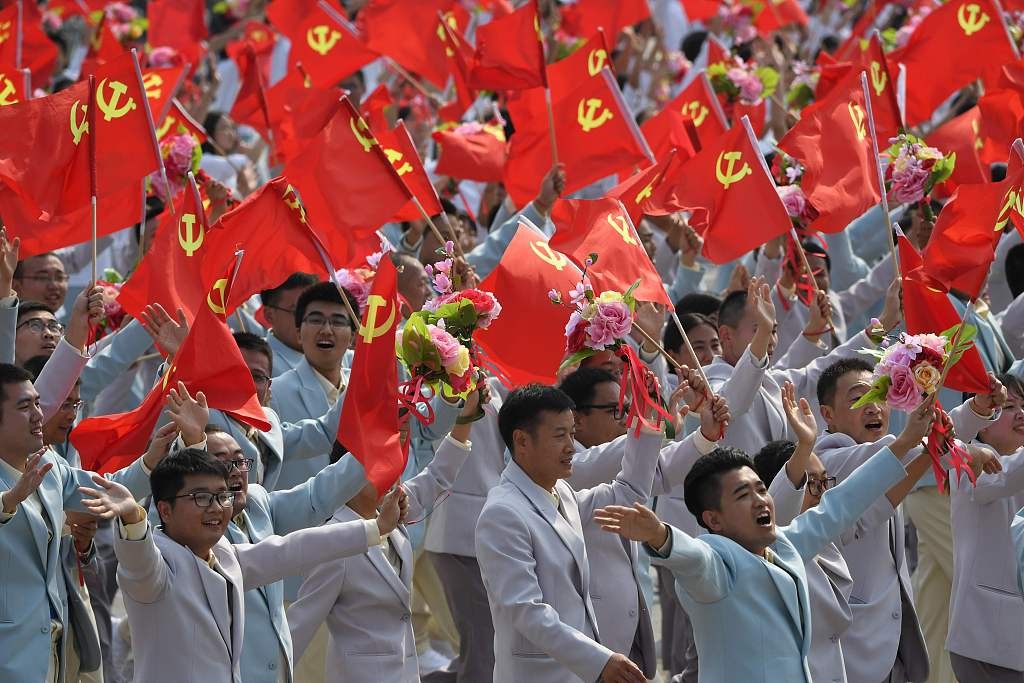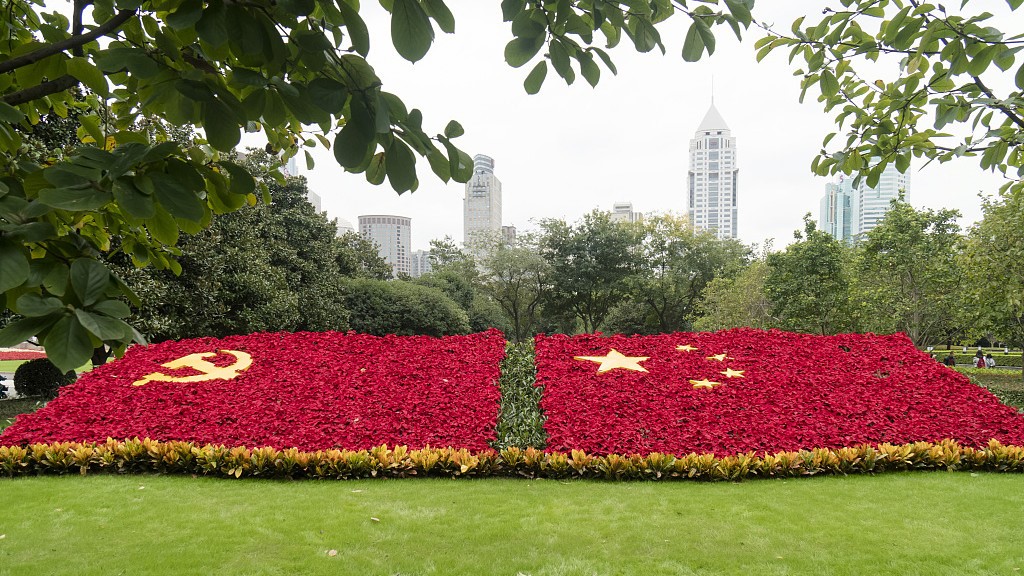Understanding China's state governability in its historical context
(来源:CGTN, 2019-10-29)
Editor's note: Gao Lei is an assistant professor from Collaboration Centre for Theories and Practice of Open Economy, Centre for Xi Jinping Thoughts on Open-up at the University of International Business & Economics; Xia Lu is an assistant professor from National Academy of Development & Strategy at the Renmin University of China. Dr. Gao is the main contributor, and Dr. Xia is the corresponding author. The article reflects the authors' opinions and not necessarily the views of CGTN.
As the fourth plenary session of the 19th Central Committee of the Communist Party of China (CPC) is being held in Beijing, many observers might get confused with one of its major themes "to advance the modernization of China's system and capacity for governance." To understand this term better, it might help take a brief look at modern Chinese history.
While addressing in the ceremony of the 60th founding anniversary of the National People's Congress, Chinese President Xi Jinping pointed out that China's political institutions are viable and efficient because they are deeply rooted in the Chinese society.
Obviously, Xi was referring not only to the institutions established after 1949, but also to the broad and abundant resources of governing practices accumulated for centuries in ancient China, with centralized authority, standardized policy-making and implementation processes, being that an efficient administration was the central theme.
Searching for an effective way to govern a country has been one of the major themes across human history. As early as the Qin Dynasty (221 to 206 BC), China has started to establish a viable centralized bureaucratic system. This system experienced its peak during the Qing Dynasty (1644 to 1911).
At the same period in 1648, the Treaty of Westphalia was signed in the west, which has laid down the fundamental principles of the sovereignty of the nation-state regardless of size, location, population, religion, culture, and more importantly, political system. Although the Pope always craved unification of Europe under a single faith, local elites always resisted it. They feared to be treated as part of others, not as an independent entity enjoying discretion.
This is not to say that the West has established a modernized state governing body long before China; rather, judging by criterion created by Western scholars, ancient Chinese elites had already established a prototype of the modern state, with unified jurisdiction, a strong centralized authority, and a well-educated professional bureaucracy.
Needless to say, the word "modern" itself and everything that can be called "modernized" has been the product of the dominant Western culture since 17th and 18th century. Therefore, we need to be cautious when we discuss modern state governing bodies and effective governability in the contemporary Chinese context.

Since the mid-19th century, European imperialist and colonialist powers came to China and wanted to "help" China become "modernized" but according to their standards. Truth is, they might have impinged China's own path, or even worse, dragged China down to an anarchical and chaotic situation.
In this sense, from 1840 to 1949, the task for Chinese elites to build a modern state with a centralized and efficient governing body can be viewed as the process of reviving and perfecting a prototype of a modern state. With the state being revived, Chinese people can finally be revitalized.
Fortunately for Chinese people, this historical mission is destined to be fulfilled by the Communist Party of China (CPC). And the Party has always been cautious in governing the Chinese national economy and social change. The power of the state and market has been effectively combined. This is one of the rich resources and a manifested feature of the Chinese political system, a historical one deeply rooted in long-term political practice.
As the late Harvard political scientist Samuel Huntington claims in his work on political development: What matters is not the form of government, but state capacity. The most important political distinction among countries concerns not their forms of government but their degree in governance. In developing countries, there is a general shortage of strong state capacity that could hold people together and make improvements in the economy and people's lives. And we have full reason to believe that what the CPC is undertaking now is to revitalize Chinese state governability with modern criterion.
